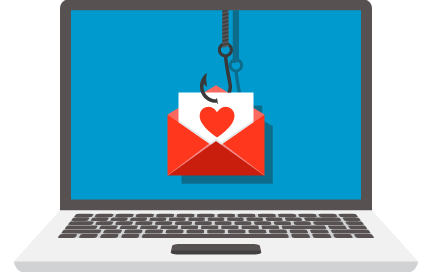Together, we learn how to safely navigate the internet
Whether you use the internet for work, play or to socialize, take time this month to think about ways you should use technology safely.
5 tips to safer internet browsing
Think about ways you use the internet and the devices to access it. Protect yourself while browsing by thinking ahead:
- Update your computer and mobile device software
- Shopping and contests
- Pop-up ads and malicious links
- Use strong passwords and multi-factor authentication
- Be sure to use a trusted Wi-Fi network and VPN
Install the latest antivirus and anti-malware updates on your computer and mobile devices. Many times, we update our desktops with the latest patches but forget about updating our mobile devices.
Mobile device users are easy targets for even the most primitive malware, so be sure to update those mobile OS updates. This is one way to keep your devices safe from hackers while using the internet to shop or work.
if a website can be trusted if the website address starts with “HTTPS”. The “S” means the website is using HTTP Secure, an extension of HTTP. An icon of a locked padlock will usually appear to the left of the URL.
Never send money to a merchant via an app like Cash App or Venmo. Use a payment service that protects the buyer from fraudulent activity: for example, PayPal, where you can file a claim if the vendor does not send you the merchandise you paid for or your account is compromised.
If something sounds too good to be true, it probably is. That foreign billionaire didn’t leave you his fortune and you didn’t win an iPad. Also be on the lookout for anything that wants you to “act quickly” or asks you to enter personal or sensitive information.
Unexpected pop-ups can be more than just annoying. These ads are notorious for containing a type of malware called “adware,” If you ever get a pop-up that says you won anything free, don’t click on it! I guarantee the that click will cost you plenty!
The same goes for email links. Never click on an email or text link you weren’t expecting, or that looks suspicious. If you click before you think, you could inadvertently download ransomware, spyware or malware, infecting your computers and compromising your data.
A strong password is one of the first lines of defense against hackers. Consider using a passphrase, rather than a simple password. The passphrase should be long, at least 15 characters, and contain multiple unrelated words and characters. And remember to never share your password with anyone, ever!
Consider using a password manager, like LastPass, to create very strong and unique passwords for each of your online websites. Passwords managers are convenient because you only have to remember one password to access your account.
Many websites offer an option to verify your identity if someone logs into your account from an unrecognized device. Usually, the site will send you an email or text with a unique code to validate your identity. This gives you an extra layer of protection when accessing important account information.
When browsing the internet on a public or shared Wi-Fi network, be sure to use a legitimate, trusted network that is password-protected. It’s also a good idea to use a Virtual Private Network (VPN) whenever you connect to a public or shared Wi-Fi.
Avoid doing anything that involves sensitive data on a public Wi-Fi network like bill paying, using your credit card or accessing your bank account. Save those transactions for when you’re connected to a secure home network.
Can you really trust the apps on your phone?
Apps on your mobile device can access a lot of private and personal information without your knowledge. They can gather geolocation data, names, dates, and credit card information without you knowing! Monitor your apps to ensure they meet a certain standard of security.
- Be mindful of the app’s permissions. Ask yourself if it makes sense to let an app access the data they are requesting to see.
- Buy or download your apps from the official Google or Apple stores.
- After installing the app, be on the lookout for any suspicious activity, like excessive battery usage.
- Research the app company. Experts suggest searching for the app name and the phrase “data scandal” or “scam”.
- Be sure to keep your apps up to date with the latest security updates!
Hackers know how to show the love on Valentine’s Day!
Since the birth of the Internet, February has been a month filled with chocolate, love, flowers and cybercrime! In 2000, the ILOVEYOU worm was launched into the world, infecting 45 million machines. It left a trail of 8 billion dollars in damages.
Cybercriminals use common Valentine’s Day key words like “chocolate’ or “Valentine” to trick people with malicious emails or fake websites. Be extra careful when shopping this Valentine’s Day!
Tuesday Training… "Email Security"
It’s a spam attack when Karen uses her work email to sign up for a shopping site. Can Anthony brave the storm, or are they both destined to sink under the storm of questionable email ads?

